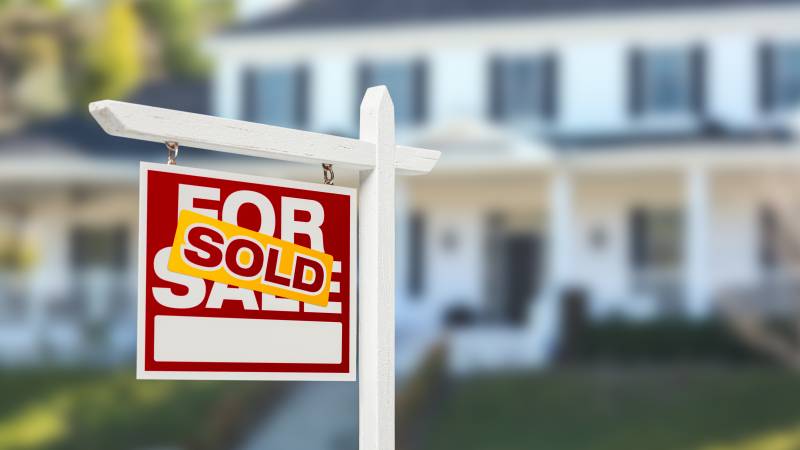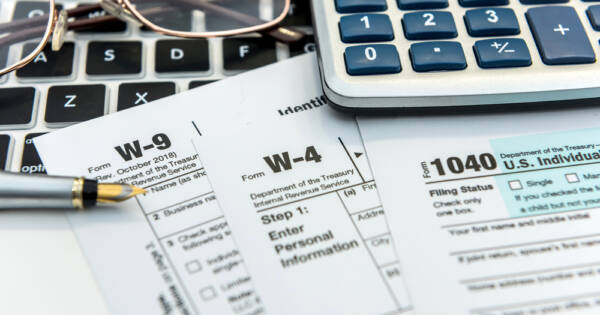Making the decision to buy a new home is one of life’s most exciting experiences. You can choose where you want to live and find a property perfect for your needs.
Unfortunately, the process of buying a house is unexpectedly difficult, especially if you’re trying to decide whether to buy or to rent your next property. To decide whether home ownership is right for your finances and situation, here’s what you need to know before you buy.
 Mortgage Rates Are Fixed
Mortgage Rates Are Fixed
According to the U.S. Census Bureau, over 64 percent of households own a home and make a regular mortgage payment. It’s typically assumed that mortgages are less expensive than renting, but it’s important to consider the factors that can make renting more costly – or cheaper – before assuming a mortgage is right for you.
People who rent often face the nightmare of having to move out in a matter of days when their landlord decides to raise rent to an unaffordable rate. Once your lease agreement ends, landlords have the right to charge higher rates or impose new restrictions. Consequently, people who rent often have to pay the cost associated with moving on a regular basis.
When you own a home, or a property with a fixed-rate mortgage, you never have to worry about your monthly payment increasing unexpectedly. In fact, the cost of your monthly installments will decrease each year as inflation makes your fixed mortgage payment less expensive.
You’ll Get a Property Tax Deduction
One of the most significant benefits associated with owning a home is the property tax deduction you can claim each year during tax season. When you rent a home, your landlord pays the taxes assessed on the property you are living in each year before passing the cost on to you. Tenants do not get to claim property tax deductions. You can, however, deduct the full value of property taxes on your tax return each year when you own a home.
Under the tax code that came into effect in 2018, homeowners can deduct to $10,000 in property taxes each year. Many states also allow you to deduct property tax payments when you file your state income tax return. Although you can no longer deduct an unlimited amount of property taxes, the property tax deduction still represents substantial savings for the average homeowner.
You Can Deduct Mortgage Interest
The U.S. tax code has long supported laws enabling homeowners to deduct mortgage interest. When the tax code was first introduced in 1913, the Tax Foundation writes, there was no limit on the amount of mortgage interest that homeowners could deduct. As time went on, laws began to be enacted that limited the amount of mortgage interest homeowners could claim. Under the current 2018 tax code, homeowners can deduct interest paid on mortgages up to $750,000 in value. The tax code even enables you to claim mortgage interest paid for a second property that you own and utilize for personal use.
Freedom to Customize Your Home
When you own a home, you can modify your property however you’d like. You can paint the walls, renovate rooms, or even add on an extension because the property is yours. When you rent a property, making even the most trivial modification to your home can lead to expensive charges, eviction, or an expensive lawsuit. Some landlords, for example, charge over $100 per nail hole they find after you move out. Hanging up pictures or using certain types of furniture can lead to serious problems when you rent. Owning a property lets you invest in your future and your home without dealing with crippling restrictions imposed by a landlord.
No Landlord Problems
Many landlords are difficult to deal with, and it isn’t uncommon for renters to move out due to a bad relationship with a property manager. Landlords may restrict the number of guests you can invite into your home, prevent you from having pets, or even attempt to micromanage your life. Some landlords own only a couple of properties, and their goal is often to simply receive rent payments without doing anything.
In some cases, bad landlords will refuse to do anything unless you take them to court. When you rent, you may even encounter landlords who actively look for excuses to sue their clients. When you own a home, you never have to worry about the potential for landlord drama. People who own property can make their own decisions without having to worry about getting approval or breaching a lease.
Deciding Whether to Buy
Property investments entail expensive long-term commitments, so it’s important to weigh your options with care before making a decision. You should conduct your own research online to determine whether a mortgage is right in your situation, reading up and learning about the pros and cons of each situation. By choosing the right ownership structure for your next property, you’ll reap the benefits of your decision for years to come.
Like anything, it’s always a good idea to be aware of the latest research. We recommend comparing at least 3 or 4 options before making a final decision. Doing a search online is typically the quickest, most thorough way to discover all the pros and cons you need to keep in mind.


